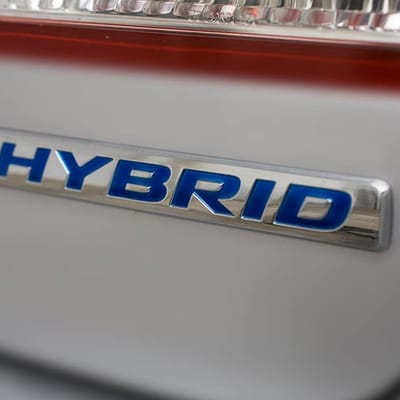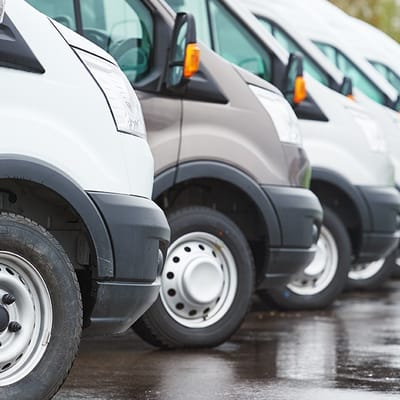- SolutionsWith a strategic solution that works for you and your business, you can unlock revenue-generating opportunities and begin managing your fleet as an investment.Overview
- About UsWhen Holman was founded in 1924, we set something positive in motion. Our consistent focus on people and our commitment to integrity make us who we are today.Overview
 Join Our TeamWe’re not just in the automotive business, we’re in the people business. Join us for the ride.Browse Careers
Join Our TeamWe’re not just in the automotive business, we’re in the people business. Join us for the ride.Browse Careers
Hybrid vs. Gas Fleet: Can I Swap My Trucks for Hybrid Sedans?
Holman Marketing
December 6, 2021

Without a doubt, sustainability has become a top priority across the fleet industry. Given the emphasis that’s been placed on reducing emissions, it’s likely your organization has announced a few sustainability initiatives of its own. You may have even been tasked with brainstorming for fleet strategies to help your organization reach these goals. Through your research, you’ve probably found that electric vehicles (EVs) are the biggest topic of discussion. After all, with OEM backing, and an expanding charging network, EVs can be a great fit for certain fleets and job types.
Not every fleet, however, is ready to make the leap to EVs just yet. Maybe you’re looking to start small and expand the sustainability scope over a longer period of time. The good news is, your strategy doesn’t have to involve a major or sudden shift. While EVs can be a great fit and can ratchet up the visibility of your sustainability initiatives, making incremental changes to your vehicle selectors and current fleet inventory is a solid starting point.
Look at your vehicle selectors and how they align with job roles
Are some of your less efficient vehicles actually legacy selectors?
Imagine a supervisor opts to work with a pickup truck – say Ram 1500 or a Toyota Tundra – simply because that’s what they’ve always done, and it’s considered a perk. It then becomes necessary to ask: does this individual’s role actually require this type of vehicle, or is there an opportunity to swap it out for a more sustainable option that will better help the organization reach its goals?
So you can trade a Nissan Titan for a Prius?
If that vehicle driver is effectively able to complete the same job using a more efficient sedan, then the answer is maybe. It’s worth revisiting targeted selectors in order to understand how they are being utilized in the field. There may be more fitting opportunities than expected for this kind of trade to occur.
Seek opportunities to cycle out vehicles that are near or past your replacement parameters
Should the entire fleet be replaced?
Let’s begin by noting that a grand replacement scheme isn’t necessary. Consistent replacement over time is the most effective strategy. With that said, naturally, a 2023 model of any vehicle is likely to be more fuel efficient and eco-friendly than its 2019 or 2018 predecessor. Assess what the cost will be to maintain and continue operating your vehicles that are past their expected life cycles and take advantage of analytical reports that show how your organization is tracking against these costs.
You may find there’s an opportunity to move the sustainability needle by accelerating some of your upcoming replacements where your budget allows. Also be mindful of vehicles in your fleet that are rarely used. Think of them as spares that your organization doesn’t need and can therefore be retired instead of replaced. The last thing you want to do is purchase a new vehicle that will sit without use.
There’s much to be considered in the approach towards running a more sustainable fleet operation. Fortunately, you’ve got options when it comes to choosing an effective tactic.
Related Resources
Explore more related industry news, insights, and developments.









